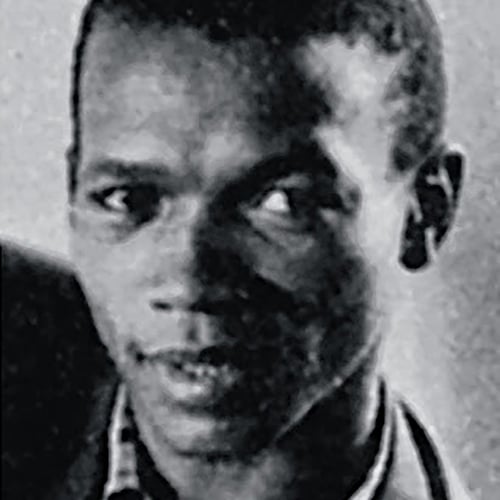Ephraim Ngatane

Ephraim Ngatane (1943 - 1971), born in Maseru, Lesotho, moved to Johannesburg in 1943. He attended Mooki Memorial School and Orlando High School in Soweto, where his artistic talent was nurtured. From 1952 and 1954, he studied painting at the Polly Street Art Centre under the tutelage of Cecil Skotnes, which greatly influenced his artistic development. Ngatane's work vividly represented the social conditions in social conditions in segregated South African communities during the 1950s.
During his time at the Polly Street Art Centre, Ngatane became a mentor to several upcoming artists, such as Dumile Feni, Louis Maqhubela, and Ben Macala. His experiences in the shantytowns and townships of the Witwatersrand were vividly reflected in his art, which evolved from watercolors to oil paints. He focused on township scenes, capturing the vibrancy and struggles of life in these areas with documentary realism and a painterly approach.
In 1960, Ngatane's work was publicly exhibited for the first time in the 'Artists of Fame and Promise' Exhibition at the Johannesburg Art Gallery. He held his first solo show at the Adler Fielding Gallery in 1963, followed by another in Johannesburg in 1964. Despite his growing acclaim, Ngatane supported himself by painting ceramic pots at Majolica Pottery in Doornfontein, Johannesburg.
Ngatane was diagnosed with tuberculosis and hospitalized at the Charles Hurwitz South African National Tuberculosis Sanatorium in Soweto in 1964. During his time there, he collaborated with young artist Dumile Feni to create murals, although most of these works have since been lost. His artistic journey continued to explore various styles, from realism to abstract painting, often incorporating religious symbolism.
Ephraim Ngatane was also an accomplished alto-jazz saxophonist, blending his love for music and art. His dedication to representing township life and his contributions to the South African art scene have left an indelible mark on his contemporaries. Ngatane passed away in 1971 due to complications from tuberculosis, but his legacy as a pioneering African artist endures.
Read More









